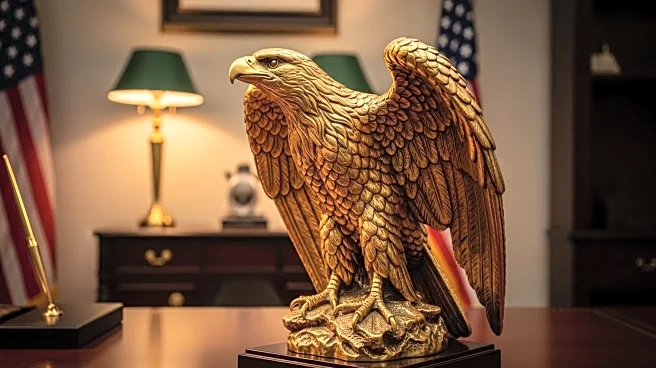What's Happening?
President Trump announced the appointment of Dan Scavino, his deputy chief of staff and trusted aide, as the head of the White House Presidential Personnel Office. Scavino replaces Sergio Gor, who has been nominated to serve as the U.S. ambassador to India. The personnel office is responsible for hiring and firing thousands of political appointees, a role that carries significant influence within the administration. Scavino, who has been a close adviser to President Trump since the 2016 campaign, is known for his loyalty and has previously served as the White House deputy chief of staff for communications.
Why It's Important?
The appointment of Dan Scavino to lead the Presidential Personnel Office is significant due to the office's role in shaping the administration's staffing decisions. Under President Trump, loyalty has been a key factor in personnel decisions, and Scavino's close relationship with the President suggests a continuation of this trend. The personnel office's influence extends to the management of political appointees across various federal agencies, impacting the implementation of the administration's policies. Scavino's leadership could further consolidate President Trump's approach to governance, emphasizing loyalty and alignment with his political agenda.
What's Next?
With Scavino at the helm, the Presidential Personnel Office may prioritize loyalty tests and align staffing decisions closely with President Trump's directives. This could lead to shifts in the composition of political appointees, affecting policy implementation across federal agencies. The office will also play a crucial role in managing the aftermath of the government shutdown, particularly concerning the retroactive pay for furloughed workers. Stakeholders, including political leaders and federal employees, will be closely monitoring these developments.
Beyond the Headlines
Scavino's appointment highlights the ethical considerations surrounding loyalty-based staffing decisions in the federal government. The emphasis on loyalty may raise questions about the balance between political alignment and professional qualifications in public service roles. This approach could influence the long-term culture within federal agencies, potentially affecting their operational effectiveness and public trust.









